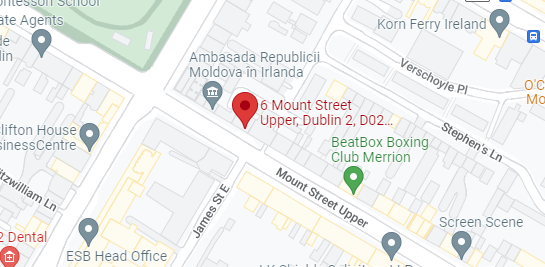Tom Hanks deserves an Oscar nomination for his portrayal of US insurance lawyer James Donovan in Steven Spielberg’s Bridge of Spies. Mark Rylance is also very good as Donovan’s client, Rudolf Abel, a suspected Russian spy and Cold War pawn.
Spielberg is the only major director who really understands insurance. Until now the industry’s cinematic footprint was pretty thin (Kidnap and Ransom is an exception). Spielberg, however, gave us the representative of the public liability insurers of Jurassic Park in the first film of that title. Sadly we never got to see his risk report because he was the first victim of the T. Rex swallowed whole after a short cowering in the lavatory sequence. Whenever I go on a site visit I always measure myself against this unfortunate dinosaur snack and always try and come out ahead of him – a low bar perhaps. Now instead, we have a proper role model and it is not going to be so easy to look good in comparison.
Donovan is the real deal. You can tell because when we first meet him he is debating with an opponent how many claims arose when his client’s Insured steered (inadvertently lost control I mean) through a biker gang injuring five of them. He is pretty hot on tactically playing up the limitations of his joint retainer, apparently distancing himself from the Insured to the benefit of both clients. Defining Donovan’s retainers is one of the strong themes of the film. Asked to act for Abel as a public duty he cannot get out of his two client mindset and so ends up acting simultaneously on behalf of both the US Constitution and Abel the spy who everyone fears is working to set up New York for nuclear Armageddon (it is 1957). Although Abel is believed to be an officer, he makes no attempt to invoke any D & O cover. His catch phrase is “Will it help?” and he probably realises that indemnity would be declined. I can think of nearly half a dozen relevant exclusions: nuclear and radioactive hazards; war and terrorism; US jurisdiction; criminal acts; and failure to disclose anything. By acting for the Russian, Donovan loses the Prudential as a client which threatens to go down badly in his year-end review.
As a trial lawyer, Donovan has his weaknesses. Every application he makes he loses. Along the way, however, he does a good job of standing up for client privilege against the CIA but, despite the weight of evidence being in no way sufficient to justify a conviction, the jury finds Abel guilty on all counts. Nobody understands why Donovan keeps on fighting for Abel as far as the Supreme Court. Even his wife and kids think he has lost it. The only success he has is that he saves Abel from the electric chair. This is by a novel application of the principle of insurance against capital punishment. In short he says that one day Abel may become useful.
Sure enough when an American airman (Gary Powers) is shot down on a high-altitude surveillance mission over the USSR the idea of a spy swap leads to the final drama of the film. The US Government doesn’t want to sully its hands with this stuff. Donovan is recruited to negotiate the exchange in Berlin at the time of the construction of the Wall. At this point the question of who Donovan is acting for becomes critical again. Should Donovan be thrown into the Gulag and with the US intent on deniability we might see how much outrage the world will summon up for the disappearance of an Manhattan insurance lawyer. Honestly do human rights extend that far?
Donovan has to have a client. The CIA tell him to focus on Powers only but there is also an American grad student who is languishing in an East German prison and Donovan starts acting on his behalf too. There are differences between the interests of the Russians and East Germans and Donovan gets to show off his negotiating skills playing them off. Just as he can turn five claims on a Policy into one, so the spy swap might be changed from a one for one into a two for one exchange. K & R negotiators might recognise some of this but the State players would kick in their exclusions. A clever lawyer would argue the DDR was not a State. Donovan is not afraid of brinkmanship on either side and relies on the old mediation tactic of playing on everyone’s desire to do the deal and get back to bed.
As a bonus the final scenes deliver one of the best depictions of the aftermath of a foreign business trip you will ever see in film. Donovan’s wife thinks he has been in Britain. The fine English marmalade she asked him to bring back, he buys at his local dime store just round the corner. The kids are watching TV when he walks in and they barely look up. All he wants to do is crash out on his own bed to sleep off the journey. Taking off clothes would be too much bother. Meanwhile the TV news announces his role in the prisoner exchange. Previously skeptical wife admires prone unconscious husband.
This is easily five star stuff. Six if you work in insurance. Seven if you are a middle aged male insurance lawyer.
For more information please contact Robert Lloyd, Partner



